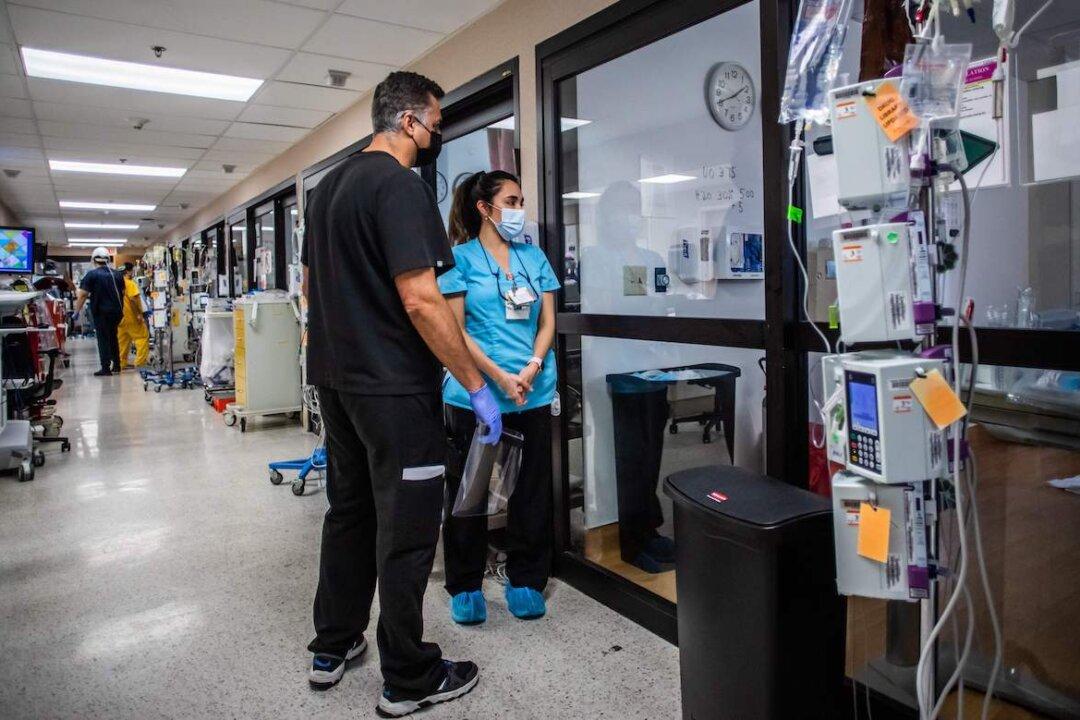California’s controversial COVID-19 misinformation law, which bars doctors from providing “misinformation” or “disinformation” related to COVID-19, is an unprecedented effort by those in power to block doctors from sharing their views on COVID-19 topics, including on vaccines, with their patients, an attorney says. And lawmakers had pivoted the initial bill from its true, intended purpose to be able to pass it.
California’s COVID-19 Gag Law Is ‘First Effort to Suppress’ Doctors: Lawyer
'If they get away with this, it's not going to be the last time they do this'

A file photo shows a doctor and a nurse in a hospital. Apu Gomes/AFP via Getty Images




